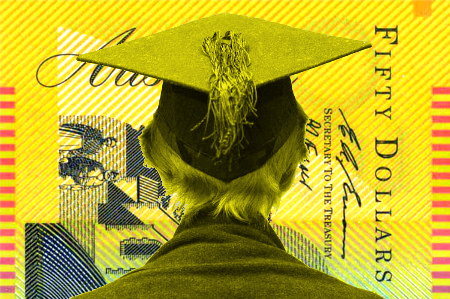Latest uni plan scanned for better fix
 The Federal Government is testing a new proposal for university fee deregulation, but the plan has not washed well with crossbench senators.
The Federal Government is testing a new proposal for university fee deregulation, but the plan has not washed well with crossbench senators.
Economist Bruce Chapman offered a new option in a recent submission to the Senate.
The well-recognised expert on the higher education funding system says universities should be allowed to increase their fees, but face a penalty if they go above an agreed amount.
“So the basic idea is the Government would set a fee level above which the universities could charge if they wanted to, but as a consequence of this and in an increasingly progressive way they would lose Government revenue,” he told the ABC.
“So if the institution decides to set higher fees then there'd be a cost, and that is designed to mitigate against there being very high fees.”
He said the effectiveness of plan would hinge on exactly where the Government chose to impose the penalty.
Professor Chapman said it could have no effect if it was set too low.
“This is really important because while the concept I think is a fairly straightforward one, what really matters eventually is the detail and that's why more modelling is required,” he said.
He said the plan would find a middle ground between a price cap on charges and full fee deregulation.
“Price caps have the advantage of certainty and of keeping the prices low, they have the disadvantage of institutions not being able to make decisions about their pricing that suits their particular environment,” he said.
“Full deregulation I think, while it gives the institutions great discretion, I think it would be associated with prices that are beyond ethical.”
Opposition education spokesperson Kim Carr called the idea a new tax on students.
“Inevitably universities will be forced to raise fees and students will be forced to pay for that and we'll see further cuts as a consequence as the Government withdraws further funds from universities,” Senator Carr said.







 Print
Print